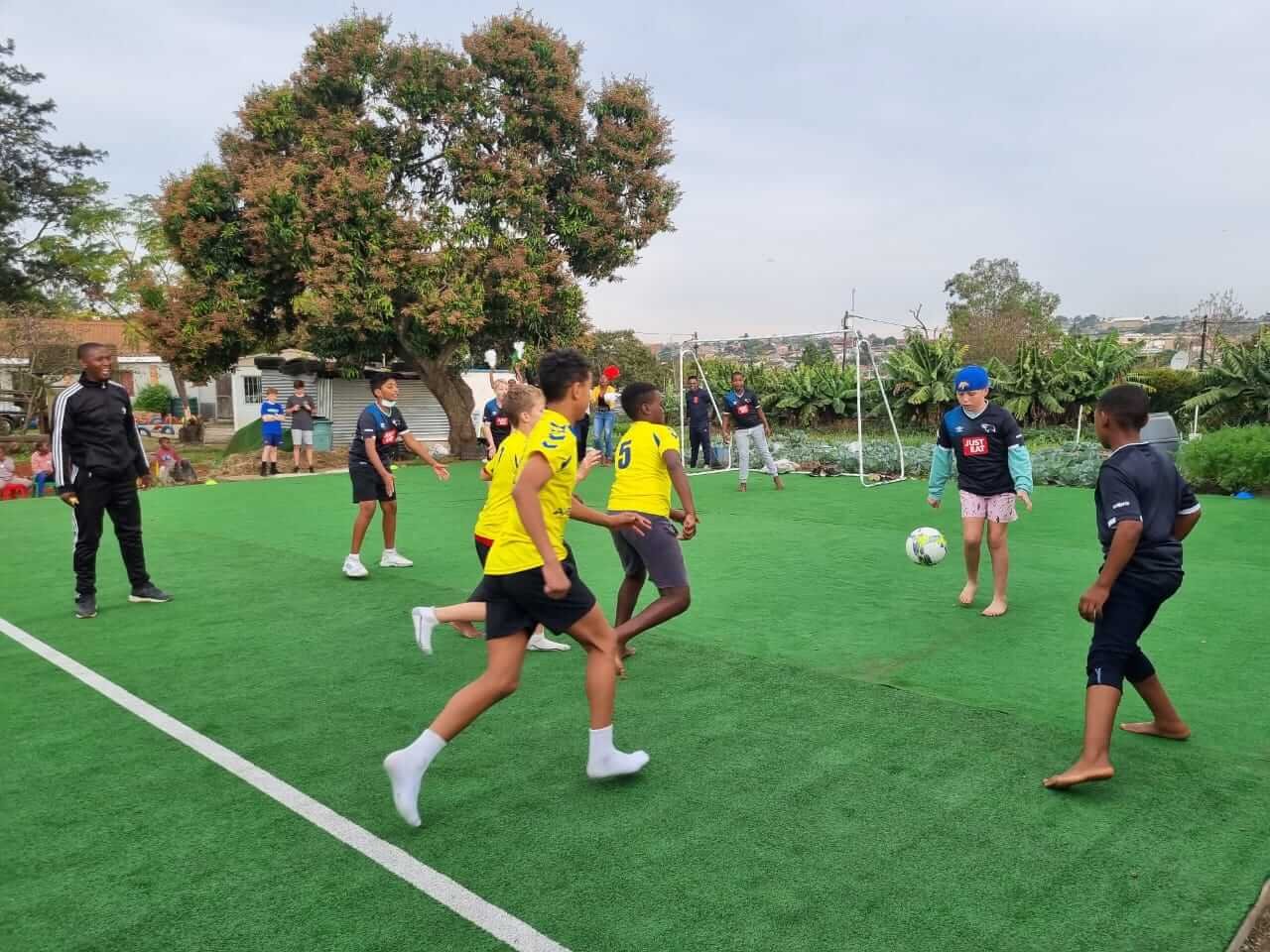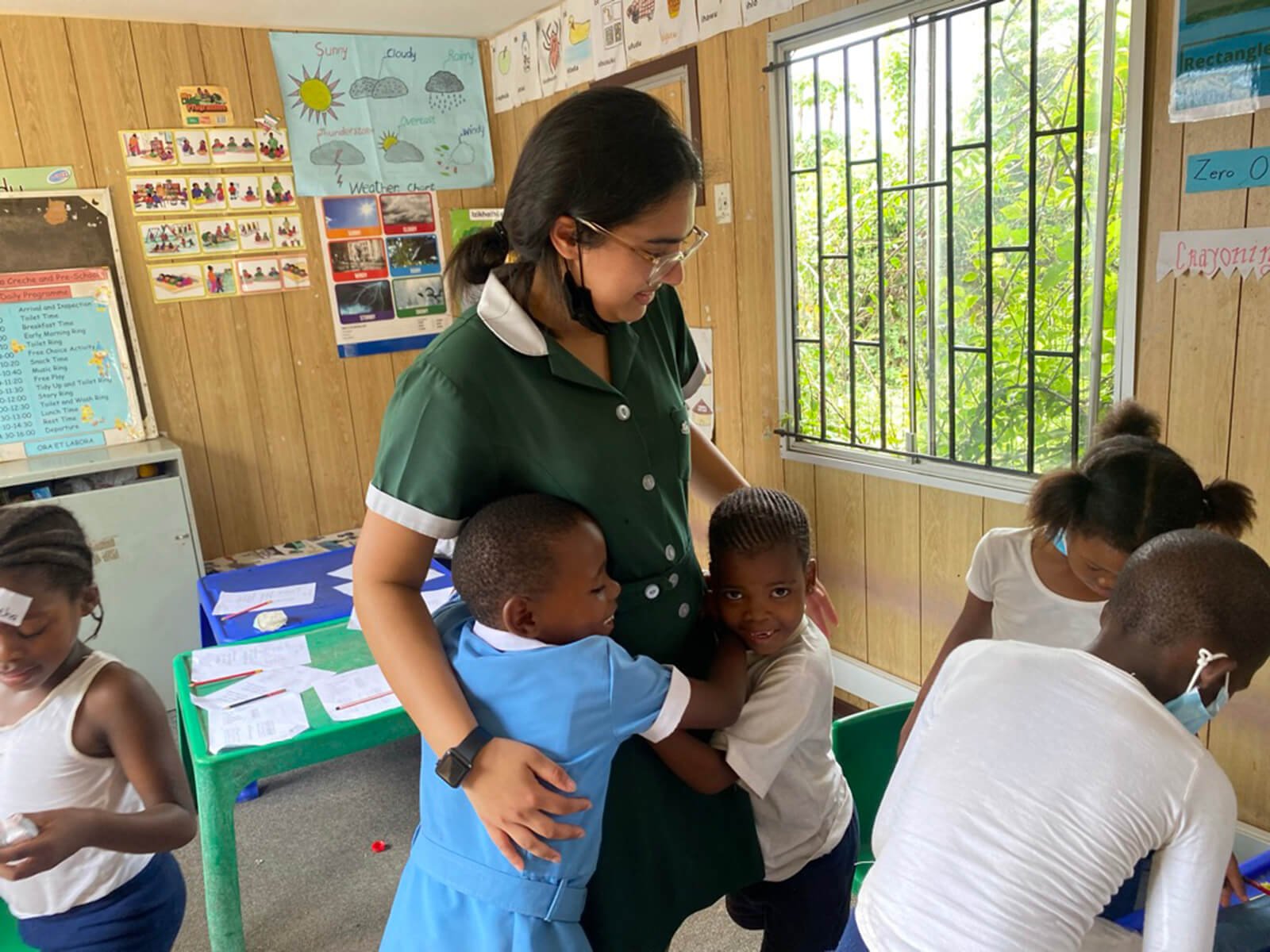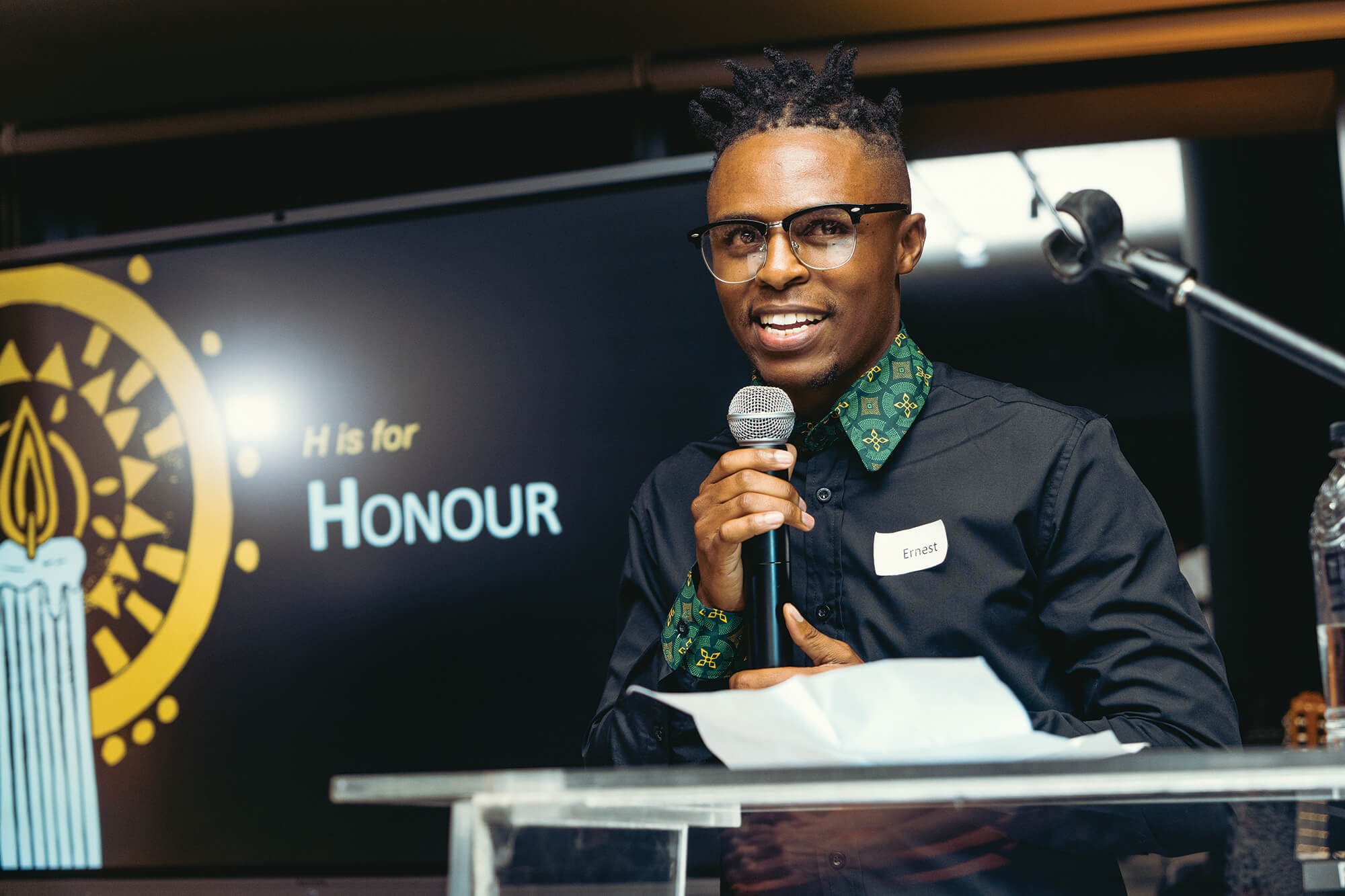
How we do things is as important as what we do
The ReStory Foundation is intentional about journeying with the materially poor in a way that brings dignity and agency.
The ReStory Foundation’s approach is not the ‘powerful‘ giving to the ‘powerless’ - we are all equals, giving to each other in different ways as we journey together. This recognition of two-way giving, or what we call eye2eye giving, brings dignity and empowerment, rather than dependency, and transforms all involved.
The H.O.P.E. Building Model
The ReStory Foundation’s H.O.P.E. Building Model is about a new way of thinking that enables this process of transformation. We are an organisation that Honours rather than pities, that focuses on long-term sustainable Outcomes rather than handouts, that develops Potential rather than focusing on lack, and that Empowers people to solve their own problems, rather than solving them on their behalf.
We are trusting that this model will be a catalyst to changed mindsets across the economic, race, gender and belief divides. The result of this will be sustainable transformation of all involved, not just the materially poor.

We have a dream of honour - where no one is seen as less than.
Where there is no giver and receiver, but all give and receive and are blessed.
(Extract from The ReStory Foundation’s ‘We have a Dream’ by Mandy Pearson)
The H.O.P.E. Building Model Explained
How you see someone matters more than what you say or do. If we want to give in life-changing ways and restore the dignity of the one who feels less than, we need to give with honour, not pity. We call this eye2eye giving, where both giver and receiver are on the same level.
-
What is poverty? If you ask a wealthy person, they will say material lack. However, a poor person will also speak of psychological & social poverty- feeling inferior & having no say. The picture of powerful people offering selfless support to the powerless with no thought of repayment, no ulterior motive, no strings attached – we assume this is so right, but... Who is the hero? Is it not the giver? Who is pitied? Is it not the receiver? When our giving damages the identity of another, when they feel pitied & in need of rescue, then have we not increased their poverty by our noble giving actions? We believe that it is essential that we actively ensure that all our giving is eye2eye and with honour. We articulate this in a verse in the Bhambayi 'We have a dream' vision: ‘It is a dream of honour- where no one is seen as less than. Where there is no giver and receiver, but all give and receive and are blessed.’ What needs to change in how I see others?
To ensure our giving is transforming lives we can't be measuring our motives- the feel-good factor, or even our actions- how many we have fed or clothed- but rather we need to be measuring the outcomes- the long-term impact of our giving- how lives have been transformed.
-
The majority of giving is on seemingly urgent short-term needs: food for the hungry, blankets & clothes for the poor. While there may be a place for this, this short-term relief seldom brings long-term transformation. Handouts can lead to dependency and growing inferiority. There are many examples where handouts can displace local entrepreneurs who cannot compete with free handouts. It can also mean goods are not looked after as they cost nothing and are in abundant supply. Just because it feels good, doesn’t mean it is good. Handouts should be avoided except in cases of urgent relief for periods less than 3 months. When deemed a necessity, they should be part of a bigger process helping people escape the poverty trap, rather than keeping them comfortable in it! Our focus is on measuring our impact by the outcomes, rather than by the inputs. While measuring outcomes is far more difficult, it is essential that we work to develop effective means of doing so to ensure we are focusing on measures that really count, not just ticking the box. Is my giving leading to long positive long term change?
Transformational giving focuses on identifying the strengths of a community or individual (rather than a focus on weakness and lack), equipping people to unlock opportunities.
-
The world focuses on people's strengths and potential, yet how do we speak of communities or individuals in need-is it not rather by their weaknesses? Their lack & their need? Yes, this motivates people to give, but does this encourage changed lives? Every person has God-given gifts and passions to develop and grow. Focusing on potential and unlocking a person’s gifts is an important part of inspiring others and helping them escape the poverty trap, rather than just make them more comfortable within it. When an individual or a community is feeling marginalized, the question “What are you good at?” can be nothing short of revolutionary. Am I focusing on the (material) lack or potential in this person/situation?
Transformational giving means focusing on people- developing a relationship with them and journeying with them in the solving of their problems - rather than merely solving the problem on their behalf.
-
How easy it is to jump to fixing what is broken, especially when we have the resources, skills and experience, but the journey is usually more important than the destination- the process of solving and owning the problem is usually of greater value than fixing the problem itself. When we meet people with genuine needs easy to want to jump to fix what is broken, or even ignite the strengths, especially when we have the resources, skills and experience. But might the doing FOR the materially poor not reinforce their feeling of powerlessness? And worthlessness? The recipient is passive and made to feel that they cannot solve the problem. Could help maybe be a form of judgement? The process of solving & owning the problem, even if it is not the ideal solution, is usually of greater value than fixing the problem itself. Through this process the material poor regain God-given dignity as human beings made to contribute to community life. Who is owning and solving the problem?

Book to join a H.O.P.E. building workshop
Through powerful storytelling and impactful sharing all are challenged in how they see others and how they give. For individuals, teams and schools.





